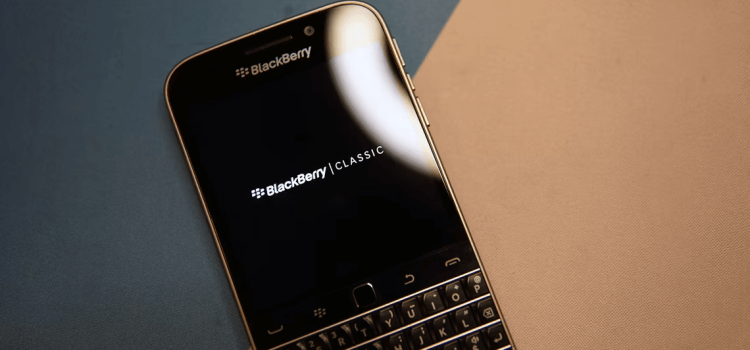
How Far Has BlackBerry Fallen?
BlackBerry’s fall was more striking than other smartphone makers due to its once-dominant market position. In December 2011, Statista noted that BlackBerry held a substantial 33.02% smartphone market share in the UK. Within two years, it plummeted by nearly half to 17.44%. Fast forward to December 2021, and BlackBerry’s market share in the UK had collapsed to 0%.
On the global stage, BlackBerry’s downfall was equally spectacular. Gartner’s February 2017 report indicated that only 210,000 devices with its OS were sold in Q4 2016. Even worse, Q4 2015 had seen less than 907,000 devices sold, constituting a mere 0.2% market share.
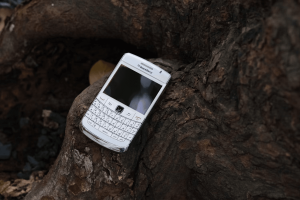
Why BlackBerry Declined So Badly
The decline of BlackBerry wasn’t an abrupt occurrence; it stemmed from a culmination of years of questionable decisions.
1. Slow to Adapt
During its zenith, BlackBerry was synonymous with innovation. BlackBerry Messenger revolutionized messaging, and its devices propelled smartphones to their current status as portable mini-computers. Yet, the BlackBerry Storm’s premature introduction of touchscreen technology failed to gain widespread acceptance.
The issue persisted as BlackBerry continued to emphasize physical keyboards despite the rising demand for touchscreens. Other factors, such as Wi-Fi connectivity problems, hindered the Storm’s success. BlackBerry’s failure to adapt in areas like camera technology also played a role.
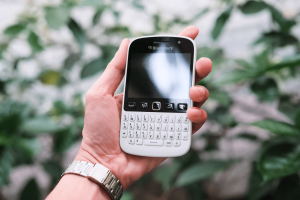
2. Losing Its Core Market
BlackBerry’s emphasis on catering to businesses blinded it to the iPhone’s potential impact. The design of BlackBerry devices reflected this, offering limited capabilities compared to early iPhones, which targeted everyday consumers.
As time elapsed, consumer-oriented phones became prevalent in business settings too, offering more features than BlackBerry devices. Accessibility and convenience drove these phones’ popularity, traits desired by corporate employees as well.
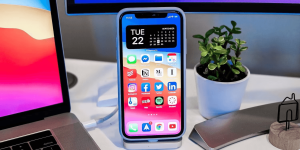
3. The BlackBerry Operating System
Loyalty to its OS, despite glaring flaws, contributed to BlackBerry’s decline. Early OS versions lacked the app variety available on Apple and Android devices. Although BlackBerry eventually expanded its app store, the damage was done.
User experience issues and performance glitches plagued BlackBerry devices, and even transitioning to Android failed to fully address these problems.
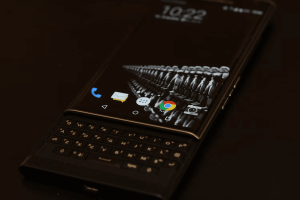
Could BlackBerry Make a Return?
BlackBerry’s glory days in smartphones may be over, as evident from its decommissioned legacy software and phone operating systems. Nevertheless, the company’s complete demise is not a certainty.

New Products and Services
Despite shrinking significantly, BlackBerry’s shift towards cybersecurity and B2B services sustained its relevance. With a focus on securing hybrid and remote work environments, BlackBerry offers AI-powered systems to counter ransomware and other threats.
The company’s revenue, though far from its peak, still remains substantial, showcasing its adaptability and resilience. Reuters reported that BlackBerry anticipates revenue ranging from $800 million to $960 million by 2026.
BlackBerry’s Failures Can Teach Smartphone Companies a Lot
BlackBerry’s decline serves as a profound lesson in business and innovation. While competitors like Apple excelled by envisioning the future of consumer smartphones and adapting to it, BlackBerry’s failures were largely self-inflicted.
BlackBerry’s pivot towards cybersecurity demonstrates a wiser approach, leveraging its strengths in B2B products and services. While BlackBerry smartphones might be history, its technological influence is far from obsolete, as its innovations continue to shape industries.
Conclusion,
BlackBerry’s dramatic downfall from smartphone dominance highlights the importance of adaptability, understanding market dynamics, and learning from mistakes. Its resurgence as a cybersecurity-focused company underscores the potential for reinvention in the ever-evolving tech landscape.








